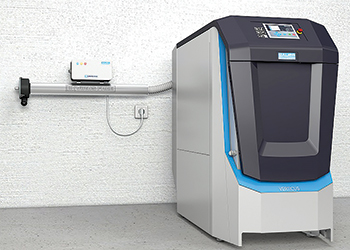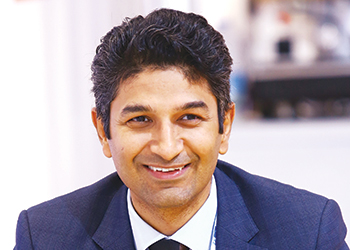
 Chaturvedy ... no compromise on quality
Chaturvedy ... no compromise on quality
Accreditation in the region’s power cable industry is becoming even more important for businesses and consumers alike, says Ashish Chaturvedy, Head of Marketing at Ducab
The UAE has traditionally been a global marketplace with products sourced from all over the world. This opens competitive options for finding the best value products and materials, especially when it comes to those needed for the nation’s infrastructure projects. However, while monetary "value" is always a consideration in sourcing these materials, quality must remain king. This is all the more important as Covid-19 reshapes global supply chains and some infrastructure players look to new alternative providers.
The quality consideration is particularly true in areas like power cabling and wiring. There is actually a huge discrepancy between market leaders and grey market suppliers. Unfortunately, the presence of counterfeit and uncertified cables is a global phenomenon. Even the use of legal but untested cables has started to climb in recent years, as they are almost always cheaper to produce and store.
Whether intentional or not, the use of counterfeit cabling products not only funds dubious businesses – it puts lives at risk. Such cables pose a threat when brought into homes, commercial buildings, infrastructure projects, and so on.
UAE government offices have done an admirable job of keeping the grey market in check. Yet it is also up to developers, business owners, and even consumers to be mindful of what they are purchasing.
Genuine cables are tested to industry standards for both performance and construction. They bear hallmarks that certify them for the applications they’re intended for, whether that is for use inside residential projects, in public transport systems, or to simply connect your coffee maker in the kitchen.
Again, uncertified cables are generally substandard. This can cause poor performance, damage equipment, and can pose a fire risk. Not only can they cause a fire, but they can hinder evacuation measures when used in residential and commercial buildings. Cables tested for fire safety, on the other hand, are designed to withstand heat, and, most importantly, have low smoke and fume emissions that provide extra time to escape in a fire emergency.
For developers and business owners in the UAE today, buying from the source is always the best way to ensure cabling products purchased are genuine. When that’s not feasible, requesting safety hallmarks and certifications is a must, and should be easily attainable in purchase orders. Manufacturers can do everything possible to earn quality standards and demonstrate them. But it will take sustained cooperation between UAE industrial entities, government regulators, and local retailers to minimise risk to life and property moving forward.
TAKING INDIVIDUAL RESPONSIBILITY
Most individuals won’t know—or have control over—the kinds of wiring used within our office and home. Nonetheless, there are some best practices we can all keep in mind when it comes to managing power:
• Buy genuine branded goods. Trusted cabling brands come with certifications that they have passed required safety standards. If this is not mentioned on the product, check online before you consider buying.
• Don’t overload sockets. If an extension cord is designed to support four appliances, don’t overload it with more than that, as there is an exponential risk of overheating the cables.
• Minimise open wiring. Exposed wiring is subject to conditions that may not be suited to the product. Whether it is water, dust, or even sunshine, wiring needs to be used as specified on the package.
• Avoid uncertified repairs. Again, cheap is not always best. If you’re getting repairs done, ask to see any cabling that is being replaced, and the packaging in which it came in.
• Remember to switch off. Even when you do use the best cables available, switch sockets off at the wall and unplug electrical goods if they aren’t in use. This will extend their lifecycle and avoid catastrophes while you’re out.


































































